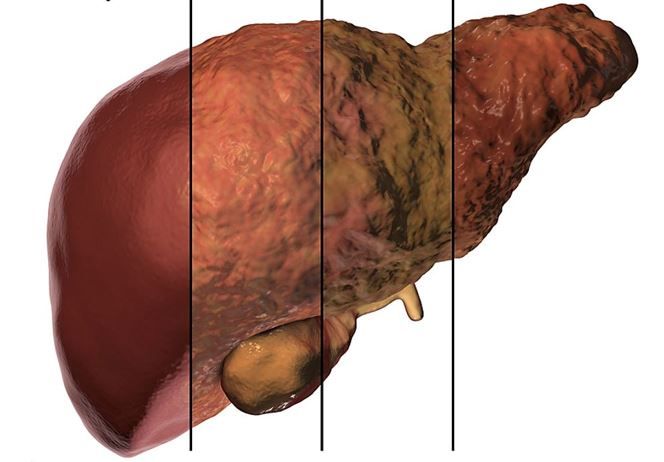Antisense Molecule against MASH from Ionis Meets Primary Endpoint in Phase 2 Trial
Ionis reports the first clinical evidence that DGAT2 inhibition-driven reduction of hepatic fat correlates with improvements in MASH histologic endpoints.
©Katyrena_Kon/stock.adobe.com

Ionis Pharmaceuticals announced Wednesday that the company’s investigational DGAT2 antisense inhibitor ION244 met the primary endpoint in a phase 2 clinical trial of the agent’s safety and efficacy in the treatment of metabolic dysfunction-associated steatohepatitis (MASH), previously referred to as nonalcoholic steatohepatitis (NASH).
Specifically, at week 51 of the 160-participant study, ION244 was associated with statistically significant liver histologic improvement as measured by an at least 2-point reduction in NAFLD Activity Score (NAS), the primary endpoint, as well as with statistically significant resolution of MASH without worsening of fibrosis, as measured by biopsy, the secondary endpoint. Further, more study participants treated with ION244, administered once monthly by subcutaneous injection, had improvement of 1 or more stage fibrosis compared to those who received placebo.
The primary endpoint was achieved at both the 120 mg (P < .001) and 90 mg (P = .015) doses studied, according to the company.
ION244, a ligand-conjugated antisense (LICA) agent, reduces production of diacylglycerol acyltransferase 2 (DGAT2), the catalyst for the final step in hepatic triglyceride synthesis. Limiting triglyceride overproduction, thus reducing excess liver fat, has the potential to prevent progression of MASH to more severe stages of disease that include advanced liver fibrosis and cirrhosis, Sanjay Bhanot, Ionis CMO, said in the company’s announcement. "The inhibition of DGAT2 represents a novel approach for MASH, a progressive disease in need of better treatment options,” Bhanot added.
"This Phase 2 trial of ION224 is the first to demonstrate clinical evidence that the reduction of hepatic fat after DGAT2 inhibition correlates with improvements in MASH histological endpoints," Rohit Loomba, MD, MHSc, professor of medicine and chief, division of gastroenterology and hepatology, University of California San Diego; founding director, MASLD Research Center, University of California San Diego, said in the statement.
Among other key findings from the phase 2 study were “significant improvements” in the primary endpoint in an analysis of a subgroup of participants with advanced fibrosis (stages F2 and F3). Ionis also reported that 44% of study participants who received the highest dose, 120 mg, reached a reduction of 50% or more in liver steatosis as compared to 3% for placebo. Evaluating the secondary endpoint, 32% of participants on the 120 mg dose had biopsy-measured 1 stage or more improvement in fibrosis compared to 12.5% of those on placebo.
The 2-part multicenter double-blind placebo-controlled study enrolled 160 participants with MASH who were randomly assigned to receive ION224 or placebo over 49 weeks. In Part 1, 93 participants were randomly assigned in a 1:1:1 ratio to the 3 dose cohorts (60, 90, and 120 mg) and within each dose cohort, assigned 3:1 to receive ION224 or placebo. In part 2, an additional 67 participants were randomly assigned (1:1) to 2 selected dose cohorts (90 and 120 mg) and then in a 2:1 ratio to receive either ION224 or placebo within each cohort.
The safety and tolerability profiles of ION224 were favorable, with none of the ION224-treated participants reporting worsening of hepatic or renal function or gastrointestinal side effects, Ionis said. Early termination of the study was higher among the treatment vs placebo groups. Moreover, the company stated there were no treatment-related serious adverse events and no on-study deaths.
"I believe ION224 offers a unique precision medicine opportunity with an approach that is potentially complementary to others in development for MASH, and I look forward to continued evaluation of this important investigational medicine," Loomba said.
Read more about drugs in development for MASH in our Hepatic Disease Topic Center.